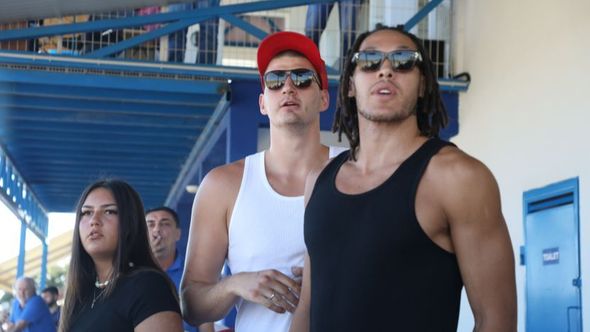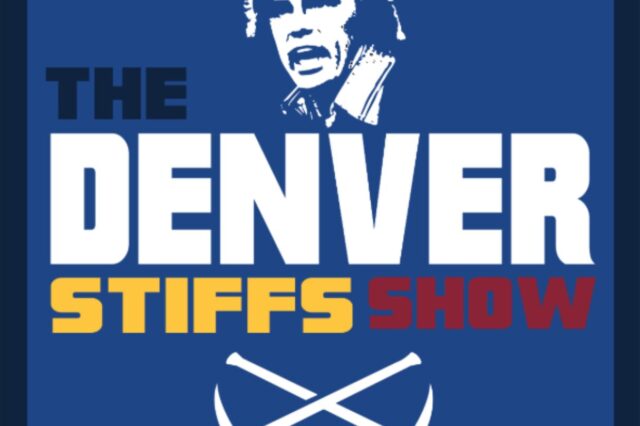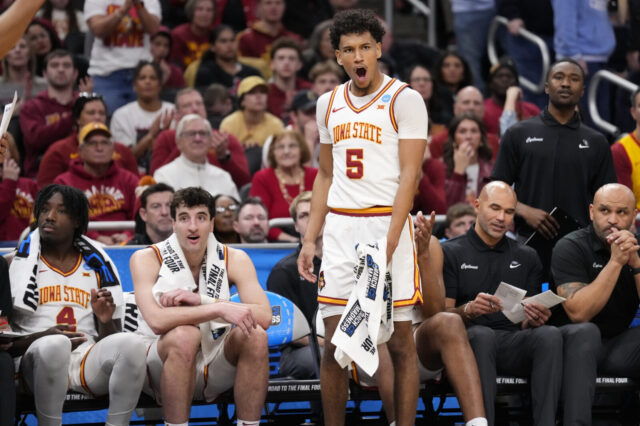In my last column, I argued that the Nuggets should be all in on winning a championship this year. As a few astute commenters pointed out, that’s all well and good, but what does being “all in” actually mean for a young team like the Nuggets? Listeners of The Dig got some clarification this weekend. If you’re interested in that debate, you can check out the pod here (our actual suggestions for trade targets begin around the 41-minute mark).
To continue that discussion, here are four reasons why the Nuggets need to make a trade in order to go for it all this year (and the big reason they probably won’t).
The Nuggets still can’t shoot
Remember when Jokic had a shooting slump to start the season? He went like 2-for-800 from 3 the first two months (to loosely paraphrase him), and at times struggled to make a layup. Since around, oh, December 15th or so, he’s gotten back to being one of the most efficient scorers in the NBA. Over the last 15 games, he’s averaging 23.5 points on 52% shooting overall, 36% from 3. He’s back to being the 20/10/7 MVP candidate he was last season. So problem solved, right?
Not even remotely. Jokic is not and has never been the problem on offense (with the exception of those pouty games he has once in a while). The reason we haven’t seen poppin’ Jokic Ball much the last two seasons is because the shooters around him—the guys who get paid to make outside shots in this offense—aren’t delivering. The Nuggets currently rank 21st in effective field goal percentage and true shooting percentage. They are 20th in three-point percentage, and 16th in overall field goal percentage. This seems to be at odds with the fact that their offensive rating of 110 puts them at a respectable 12th in the NBA. But that stat is, as Mark Twain might put it, worse than a damn lie.
This team is hiding its bad shooting with elite offensive rebounding.
This team is hiding its bad shooting with elite offensive rebounding.
They are currently first in the league in offensive rebound percentage thanks to the great work on the glass by the big men. They’re missing a ton, but no one is better than the Nuggets at getting those misses back, which often leads to easy buckets or wide-open outside shots that make their offense look a bit more respectable.
So why does it matter? Can’t they just be a below-average shooting team with elite offensive rebounding in the playoffs?
Shooting is even more important in the playoffs
Everything tightens up in the postseason. Last year, the Nuggets went from shooting 46.6% overall to 44.3% in the first two rounds. Their effective field goal percentage dropped from 53% to under 50. Their three-point shooting went down, too. While it was their first playoffs together, a drop-off is common for all teams. The Warriors eFG% dropped over two points, for example, and they certainly weren’t feeling the nerves of playoff basketball.
What’s also standard is that offensive rebounds are harder to come by. Players who may have a casual attitude about boxing out or hustling to loose balls in the regular season become much more active in the postseason. Rebounding remains a key since more shots are missed on average, but those hustle plays on the offensive glass get harder and harder to come by.
The end result are stretches like we saw in both series last year. Bricked threes lead to a clogged lane, which makes life harder on the Nuggets’ best player and the cutters he’s so brilliant at finding, and the offensive rebounds aren’t there to clean up the mess. This team is on pace for a repeat performance if something isn’t done about the outside shooting deficiency.
But what should be done?
Murray and Harris aren’t shooting well
The lion’s share of the shooting woes falls on Jamal Murray and Gary Harris. Here’s the hard truth:
- Murray and Harris are 43rd and 46th respectively in 3-point shooting percentage among the 50 guards who have played at least 1,000 minutes. This puts them behind players like Ricky Rubio, Lonzo Ball, Wesley Matthews, and Devonte Graham, for example.
- They are 33rd and 39th respectively (out of 50) in FG% overall, which puts them behind Evan Fournier, Ja Morant, and Markelle Fultz, for example.
- Both Murray and Harris are below 50 eFG%, 94th and 97th respectively among NBA guards.
These numbers are painful if you’re a Nuggets fan. This team is built around a 7-foot point center who gets his shooters and cutters open shots consistently. If the two starting guards on the team don’t scare perimeter defenders, everything gets harder on everyone. While the bench also shares some blame, the starters will determine whether the Nuggets can compete for a championship this year, or whether we will all have to keep waiting.
SHOOTING
In sum, the Nuggets have a shooting problem. If you aren’t convinced by now, nothing short of a first-round exit to Memphis will, so we should probably just get into the reason why a change probably won’t be made.
Change is scary
How would I fix the shooting issues? A trade? Sure!
There is a list of names I could throw against the wall, any one of whom could work. I’m intrigued by the idea of J.J. Redick and his league-leading 46% three-point shooting getting all those open looks that Gary Harris hasn’t made for two seasons. But there would be a drop-off on defense. There’s also the possibility that Harris gets back to being the 42% three-point shooter he once was.
There’s the possibility that Harris gets back to being the 42% three-point shooter he once was.
Plus, there would be upheaval on a team that’s been building around Gary longer than Nikola, not to mention the angry throng of Garris fans screaming about how the team turned their back on a young member of the core because of an injury-induced slump.
So what about Jamal Murray? Setting aside the fact that the team just signed him to a max deal, would I trade him for a veteran who has proven shot-making ability? Someone like Chris Paul, say? I mean, the idea of a true point guard with big-game experience and leadership running the offense with Jokic is fascinating to me. But the financials are really hard, and the Nuggets would be committing to a player whose best years are behind him while giving up on a good—potentially great—guard who is signed long-term and is the same age as Damian Lillard was when he played his first season. And as with Harris, Murray’s best shooting could still be coming.
There’s also an argument to be made (and it has been by my co-host on The Dig, Jeremy Poley) that the Nuggets’ biggest weakness isn’t shooting at all, but rather perimeter defense, especially considering the size of the wings in the Western Conference. If that is the case, a player like Robert Covington and his 36% shooting from three could potentially help two problems at once. But then what to do with Will Barton, who has been the Nuggets second best player all season. Do you move him to shooting guard and bounce … uh-oh.
It’s fun to debate these kinds of moves. We all like to imagine our dream team, the move that will put us over the top if only the front office had the guts (and budget) to go big. And a couple of weeks ago, I was ready to suggest the Nuggets do just that. The thing is, though, big moves rarely lead to championships in the same season. Chemistry takes time to build, and the Nuggets have managed to brew up something special with an imperfect mix of ingredients. So maybe the “all-in” move for this team is just to find their own secret sauce with what they already have.
In fact, a healthier dose of MPJ’s jumper could be the only addition this team really needs.
This content is no longer available.


